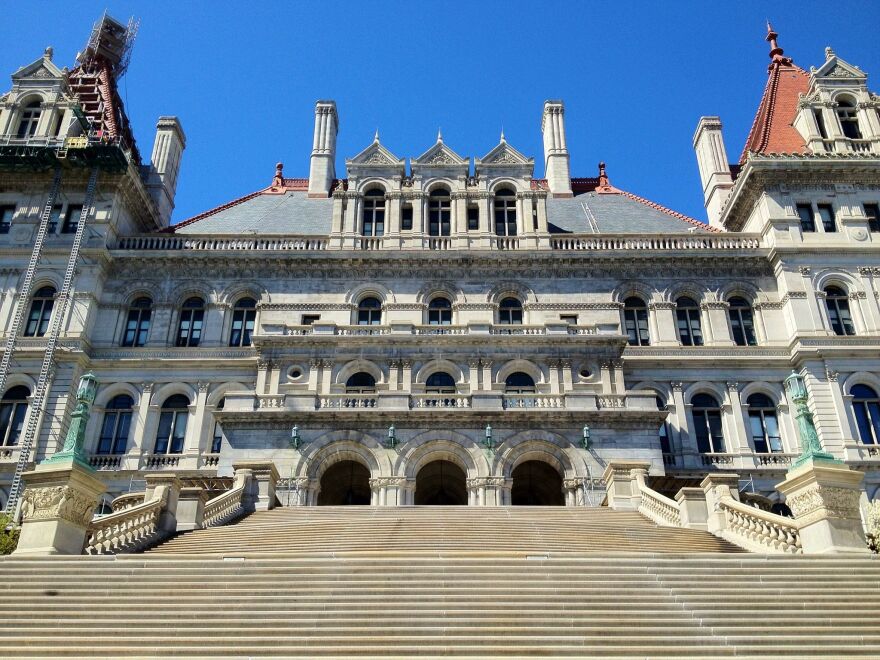New York state’s public campaign finance commission met for several hours on Columbus Day to discuss the nuts-and-bolts details of how to implement a matching public donor system for statewide races.
The commission spent over four hours discussing how to implement a matching small-donor public campaign finance system for statewide races. They reached consensus on a few issues that give an indication of how the final proposal, due in December, might look.
They discussed contributions beginning at $5 and up to $250 could be matched by the public fund at a 6-to-1 ratio.
A candidate for governor who opts in to the system could receive up to $18 million in matching funds -- $8 million for a primary and $10 million for a general election. That number is significantly lower than the $30 million spent by Gov. Andrew Cuomo, who was the winning candidate in 2018.
The commissioners also discussed a $4 million cap for matching funds for candidates for attorney general and comptroller.
Senate and Assembly seats might be limited to matching funds of $750,000 per candidate.
Commissioners said contributions to political parties might continue to be unlimited. The commission is also powerless to regulate independent expenditures, or Super PACs, due to Supreme Court decisions limiting regulation of independent expenditures.
Commissioner Henry Berger, an election law attorney appointed by Cuomo and the leaders of the Legislature, said the aim is to set the amounts high enough to attract only serious candidates, but not make it so difficult as to discourage legitimate candidates.
“What we’re creating is meant, among other things, to change behavior,” said Berger. “We want people going out and seeking the smaller contributions. And we want them seeking them within their district.”
Before the meeting, advocates for public campaign financing demonstrated outside.
The commission has also discussed whether to end the practice of fusion voting in New York; that allows candidates to be cross-endorsed by third parties and run on multiple ballot lines.
Assemblyman David Buchwald said the commission should not be deciding the future of fusion voting and should stick to the commission’s original purpose.
“The fact that they’ve been more focused on banning fusion voting in New York shows that, so far, there’s no indication that their heart is really in this endeavor that they’ve been tasked with,” Buchwald said.
The topic of fusion voting was not mentioned at the public meeting. Commissioners will meet to try to hash out more details in mid-November.








